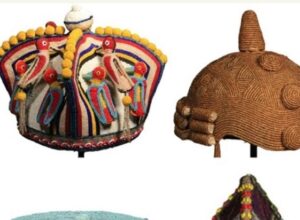Islam, Yoruba Kingship, and the Issue of Religious Equity
Islam, Yoruba Kingship, and the Issue of Religious Equity

Before the arrival of Islam and Christianity, the Yoruba people practiced a traditional belief system rooted in reverence for deities like Sango, Ogun, Yemoja, and others—a religion known as Ìṣẹ̀ṣe.
However, it’s important to draw a clear line between Yoruba culture and the Ìṣẹ̀ṣe religion. Yoruba culture is much broader and includes values that transcend religious boundaries: respect for elders, graceful attire like the agbada, hospitality, pursuit of knowledge, and good conduct. These are cultural hallmarks, not religious obligations.
The real tension surfaces when traditional religious rites are made mandatory for those aspiring to the Yoruba throne. Historically, kingship has required participation in certain Ìṣẹ̀ṣe rituals, which often involves pledging allegiance to ancestral deities. This expectation effectively sidelines devout Muslims and Christians, even if they are legitimate heirs, by compelling them to compromise their beliefs.
This raises serious concerns about fairness and freedom of religion. No Yoruba person is more authentically Yoruba because of their religion. Yoruba identity is rooted in heritage—not in one’s choice of worship.
The recent debate following the passing of the Awujale of Ijebu—who remained a devout Muslim until his death—highlights this ongoing tension. Some critics questioned the Islamic burial he received, arguing that all Yoruba monarchs should follow traditional rites. But this thinking is flawed. A king’s faith should be respected in life and in death, whether Muslim, Christian, or traditionalist.
It’s time for our leaders—government and traditional institutions alike—to modernize these customs. Policies should protect the right of any Yoruba descendant, regardless of faith, to ascend the throne and practice their religion freely.
We must continue to honor and preserve Yoruba culture—through our language, attire, cuisine, and shared values—without turning traditional religion into a gatekeeper of leadership.
Diversity is not a weakness; it is our collective strength. Let’s uphold it.
TRENDING SONGS
 Wedding Called Off: How Lady Cancels Wedding After Finding Out Finance’s Affairs With Her Bestie
Wedding Called Off: How Lady Cancels Wedding After Finding Out Finance’s Affairs With Her Bestie
 Heartbreak in Ikeja: Lady Weeps After Fufu Found in New Phone Package
Heartbreak in Ikeja: Lady Weeps After Fufu Found in New Phone Package
 Twist of Fate: Man Who Questioned Phyna’s ₦1Billion Demand Mourns Brother in Dangote Truck Crash
Twist of Fate: Man Who Questioned Phyna’s ₦1Billion Demand Mourns Brother in Dangote Truck Crash
 Tragedy in Enugu: Dangote Truck Claims Lives of Family of Five
Tragedy in Enugu: Dangote Truck Claims Lives of Family of Five
 Bangkok Crackdown: Nigerian-Thai Couple in Police Net Over Drug Trafficking
Bangkok Crackdown: Nigerian-Thai Couple in Police Net Over Drug Trafficking
 Family Rift: Reno Omokri’s Ex-Wife Says He Deserted Their Special Needs Son
Family Rift: Reno Omokri’s Ex-Wife Says He Deserted Their Special Needs Son
 The Man Who Sent Money for Two Decades, Only to Return to an Empty Shell
The Man Who Sent Money for Two Decades, Only to Return to an Empty Shell
 See how a young lady was beaten in a village and naked for stealing a goat
See how a young lady was beaten in a village and naked for stealing a goat
 See How Man That Plans to Divorce His Wife, Gets Shocked When She Leaves Him First With Their 5 Kids
See How Man That Plans to Divorce His Wife, Gets Shocked When She Leaves Him First With Their 5 Kids
 Tragic Land Dispute: Man Kills Father in Imo, Pastor Arrested for Rape
Tragic Land Dispute: Man Kills Father in Imo, Pastor Arrested for Rape
Share this post with your friends on ![]()













